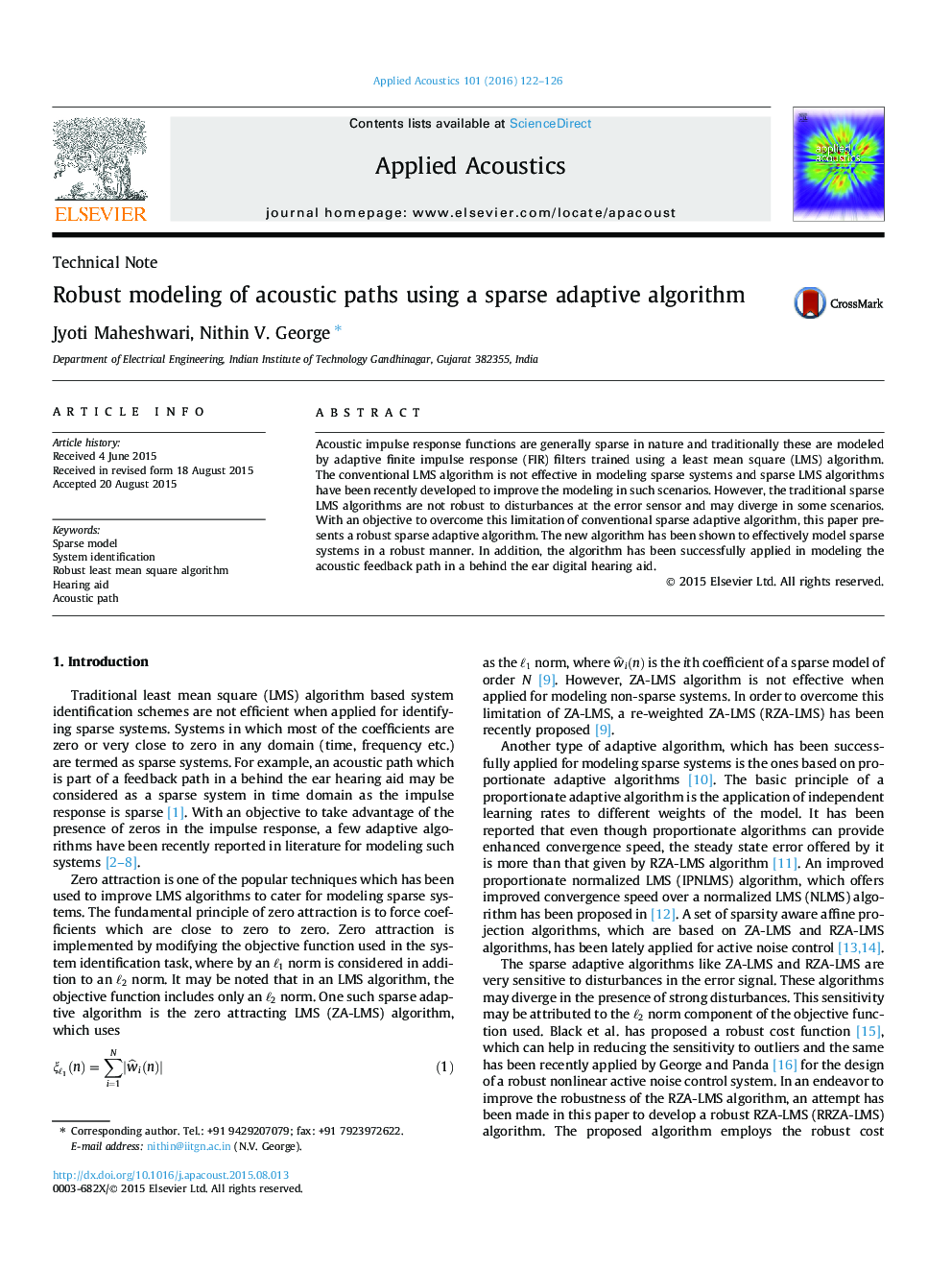| Article ID | Journal | Published Year | Pages | File Type |
|---|---|---|---|---|
| 7152636 | Applied Acoustics | 2016 | 5 Pages |
Abstract
Acoustic impulse response functions are generally sparse in nature and traditionally these are modeled by adaptive finite impulse response (FIR) filters trained using a least mean square (LMS) algorithm. The conventional LMS algorithm is not effective in modeling sparse systems and sparse LMS algorithms have been recently developed to improve the modeling in such scenarios. However, the traditional sparse LMS algorithms are not robust to disturbances at the error sensor and may diverge in some scenarios. With an objective to overcome this limitation of conventional sparse adaptive algorithm, this paper presents a robust sparse adaptive algorithm. The new algorithm has been shown to effectively model sparse systems in a robust manner. In addition, the algorithm has been successfully applied in modeling the acoustic feedback path in a behind the ear digital hearing aid.
Related Topics
Physical Sciences and Engineering
Engineering
Mechanical Engineering
Authors
Jyoti Maheshwari, Nithin V. George,
